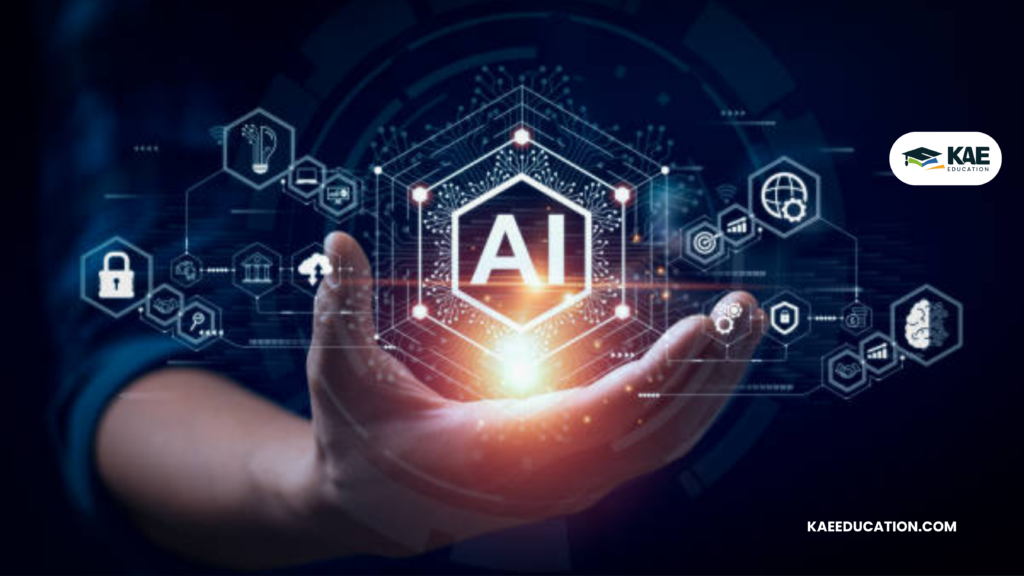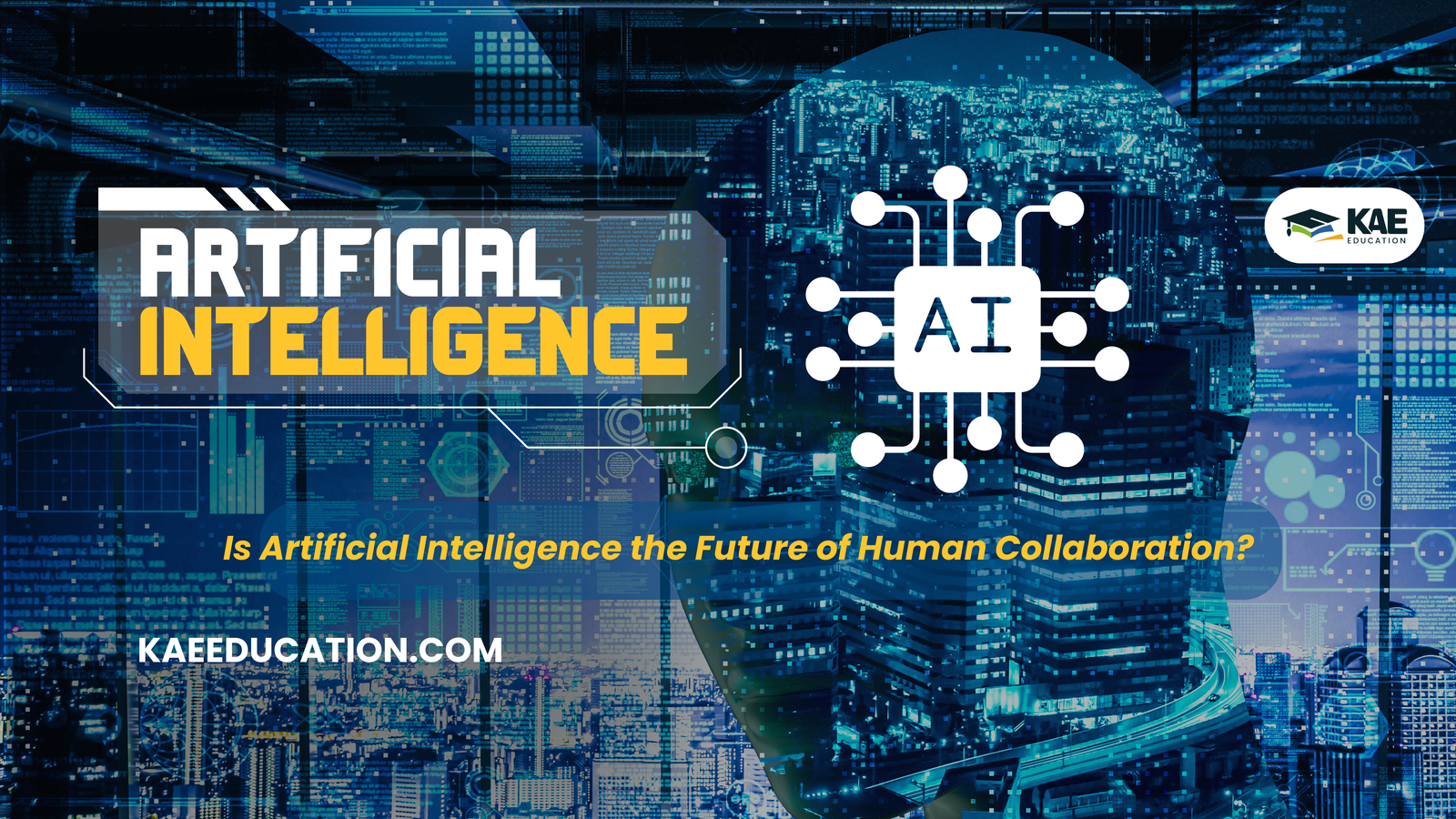Is Artificial Intelligence the Future of Human Collaboration?
The idea of Artificial intelligence (AI) is no longer a sci-fi fantasy. It’s already transforming various industries and the way Humans collaborate. As Technology continues to evolve, AI is poised to play a pivotal role in shaping the future of Human collaboration. From improving productivity to enhancing creativity, AI has the potential to be a game-changer for Businesses and individuals alike.
In this blog, we will explore how Artificial intelligence is revolutionizing the way Humans work together and how it will continue to reshape the future of collaboration across industries.
Artificial Intelligence’s Function in Human Cooperation
AI is already influencing collaboration across multiple domains, and its potential will only grow in the coming years. Here are some ways Artificial intelligence is transforming collaboration:
(1) Enhanced Communication
AI-powered tools are improving communication by eliminating language barriers and ensuring seamless interaction between people from different parts of the world. Automated translation tools, powered by AI, are enabling teams to work more efficiently, without the need for translators.
(2) Automation of Repetitive Tasks
One of AI’s most powerful benefits is its ability to automate time-consuming and repetitive tasks. By offloading routine work to AI, employees can focus on more strategic, creative, and impactful tasks. This leads to improved collaboration as team members can concentrate on innovation rather than mundane tasks.
(3) Data-Driven Decision Making
Artificial intelligence is capable of accurately and swiftly processing vast volumes of data, providing insights that people might overlook. Teams can leverage AI tools to analyze trends, track performance, and make more informed decisions, leading to better collaboration and more effective outcomes.

(4) Personalized Collaboration Tools
Artificial intelligence can help create personalized collaboration environments by understanding individual preferences, working styles, and communication needs. AI-powered project management tools, for example, can customize workflows, assign tasks, and suggest optimal work patterns for each team member, thereby boosting team collaboration.
(5) Virtual Assistants
AI-powered virtual assistants, like Siri, Alexa, and Google Assistant, are already being used to help streamline day-to-day tasks and manage schedules. These assistants improve collaboration by handling basic tasks like setting up meetings, managing calendars, and answering routine questions, enabling employees to focus on higher-level work.
The Future of Artificial Intelligence in Human Collaboration
As AI technology continues to evolve, its integration into collaborative workspaces will become deeper and more sophisticated. Here’s what the future holds for AI in collaboration:
(1) AI-Powered Collaborative Platforms
The future will see more AI-driven platforms that help teams collaborate in real-time, track progress, and suggest ways to optimize workflows. These platforms will seamlessly integrate AI to offer smarter suggestions, automate project updates, and assist in project execution.
(2) AI in Virtual Teams
As remote work continues to rise, AI will help manage virtual teams by ensuring smooth communication, tracking productivity, and fostering a sense of collaboration, no matter where team members are located. Virtual workspaces enhanced by AI will allow individuals to collaborate seamlessly across time zones.
(3) AI and Human Creativity
AI is not just for automation—it can also enhance Human creativity. In Industries like marketing, design, and content creation, AI is being used to brainstorm ideas, suggest design elements, and even generate content. In the future, AI will act as a collaborative partner in creative processes, pushing the boundaries of innovation.
(4) Advanced Analytics for Real-Time Collaboration
In the future, AI will help analyze ongoing collaborative efforts in real-time, offering insights that can immediately improve productivity and efficiency. This will lead to more dynamic collaboration, where teams can quickly adjust and pivot their strategies based on data-driven insights.
Conclusion: The Future of Artificial Intelligence in Human Collaboration
AI is not just a buzzword—it is an indispensable tool that is transforming how Humans collaborate. From automating tasks to enhancing communication and decision-making, Artificial intelligence will continue to play a vital role in shaping the future of teamwork. As AI technology evolves, it will unlock new levels of productivity, creativity, and efficiency, revolutionizing collaboration across industries and paving the way for a more connected, innovative future.
With AI’s growing influence, the future of Human collaboration is not only brighter but also smarter.
Frequently Asked Questions (FAQ)
AI enhances collaboration by automating repetitive tasks, providing personalized tools, and offering real-time data analysis, allowing teams to focus on more strategic and creative work.
Industries like Healthcare, Finance, Marketing, and Technology are benefiting significantly from AI-driven collaboration, streamlining operations and improving decision-making.
AI will not replace Human collaboration but will enhance it. It will automate certain tasks, provide insights, and enable more efficient work processes, allowing Humans to focus on tasks requiring creativity and complex decision-making.
AI-powered translation tools and communication platforms break down language barriers and optimize workflows, making communication smoother across teams from different regions.
AI-powered collaboration platforms are software tools that use AI to manage tasks, track progress, and suggest optimizations, improving the efficiency and quality of teamwork.
Yes, Artificial intelligence will enhance remote collaboration by providing virtual assistants, improving communication tools, and helping manage virtual teams more efficiently.
AI can assist in creative tasks by offering suggestions, generating ideas, and even producing initial drafts, empowering teams to think outside the box and innovate faster.

